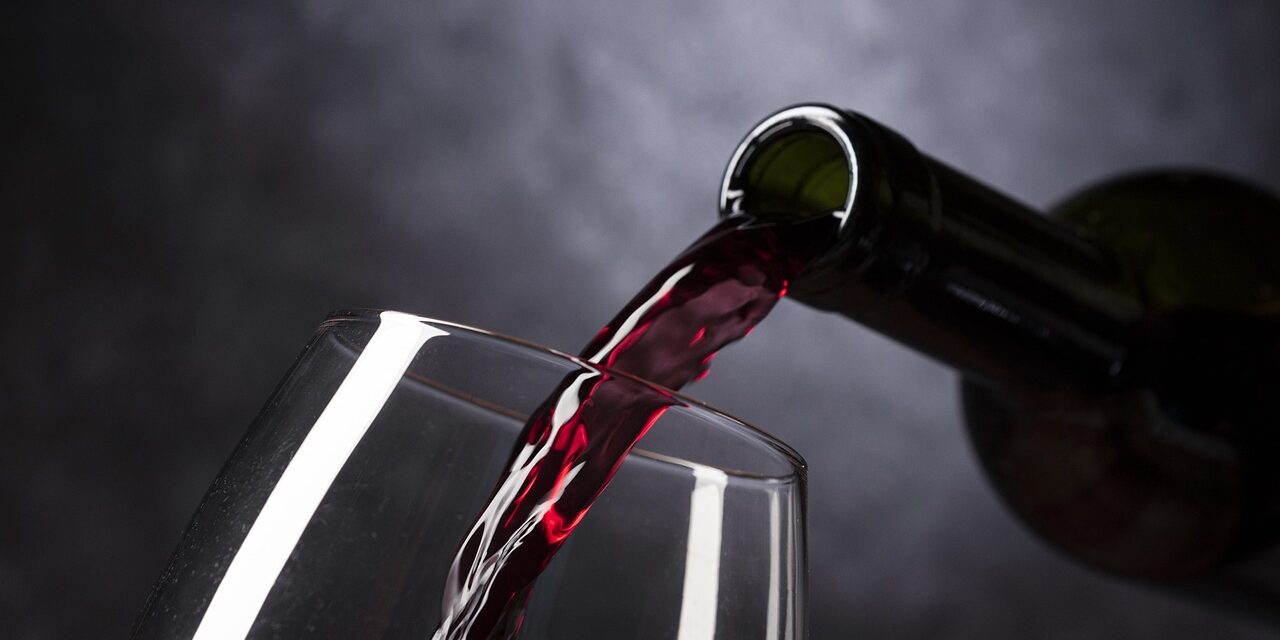Thanks to the European Commission, we can now eat crickets, chirping house crickets and grain mold beetle larvae. If you like it dried, frozen, if you like it in powder form or mashed. It can be mixed into bread, flour, pasta or meat products, coloring and enriching our eating habits. Insects are a healthy alternative source of protein instead of meat and fish, says the committee, and the EU food law regulations confirm this proposition.
The same committee now wants to convince the Europeans that wine, this liquid alcoholic drink that has been present in European culture for about six thousand years and is filled with sacred and social content, is harmful to health and, moreover, carcinogenic, and they want to have this indicated on every bottle.
It is lucky that there are bigger wine-producing countries than us, such as the French and the Italians, in whose economies wine represents a serious revenue. In response to the EU proposal, they had the effect of wine on health examined with the involvement of well-known professors and well-known clinics, and indeed they reached a positive result. Because moderate wine consumption is especially good for the heart, it prevents the development of cancer and arteriosclerosis, and it is suitable for curing many ailments. We have known this for a long time, II. King-Emperor József's stomach ailment was also treated with tokaji.
The committee therefore called a retreat on this issue, but did not give up the fight, there are too many climate protection and healthy nutrition lobbyists who want to make wine consumption impossible at all costs. The liquor lobby, to which wine is a competitor, certainly helps in decision-making. However, I think it's the other way around, since spirits can be made from anything, at any time, but wine can only be made from grapes and only once a year, even then in quantities depending on the harvest.
With the usual competence from Brussels, they claim that wine is an alcoholic drink. This is true, as the wine contains 12-14 percent alcohol, the wineries always indicate how much in accordance with the regulations. However, wine is a fermented drink, it is not produced artificially, but from the grapes as a result of a biochemical process, so it naturally contains alcohol. Wine is born once a year, because grapes cannot be stored like meat or grain, and the natural fermentation process begins, human intervention or not. And the end product will be an alcoholic drink, i.e. the wine consumed since ancient times.
Winemakers are now expected to reduce the alcohol content of all wine products by 15 percent by 2025, which will also reduce the enjoyment value.
The member states have also accepted the idea that, from December 2023, it is mandatory to indicate the "materials used in winemaking" on wine labels. This is a well-known regulation for foodstuffs, for example the larva of the grain mold beetle is already indicated, of course marked with an unrecognizable code. However, additives, i.e. various substitutes, are added to food, but there is nothing to substitute in winemaking. There are only technological aids here, antioxidants from the grapes and sulfites that prevent the wine from spoiling. If additives are added to the wine, we are talking about wine adulteration. But what should we expect from the ministers of the Member States, most of whom are appointed to their positions based on party quotas, such as the German Green Minister with a degree in social pedagogy.
I was looking at some wine labels. I think all important information is indicated on them, variety, vintage, protection and designation of origin, place of production and producer, quantity and alcohol content, the NÉBIH certificate and sulfite content. Aesthetic, unique labels designed by a visual artist, there is no room for additional information. Although the indication of health-harmful labels has been removed from the agenda for the time being, I imagined the familiar terrifying images of cigarette boxes, the images of toothless figures with enlarged livers and toothless figures lying under the table in the spirit of anti-alcoholism, the cancer patient on the hospital or death bed, with the prescribed text that wine kills, stuns and impoverishes. After that, at the distribution of the Lord's Supper, how would the pastor offer the faithful the poisoned wine, the blood of Christ?
In Brussels, the Bible is probably not taken in the first place, even though grapes and wine are mentioned about five hundred times in it. In Brussels, they don't know how much of a cult Dionysus and Bacchus had in the ancient world, that wine gives birth to cheerfulness and intoxication, that wine is health, comfort and, of course, the truth in wine. They didn't read Béla Hamvas either.
Then there is the issue of bottles, the new waste management regulations introduced in accordance with EU regulations. Winemakers would have to pay an environmental fee for single-use wine bottles, or buy glass washing machine lines and technology, the cost of which would put them at a significant competitive disadvantage in the markets. In order to be effective on the market, the government released the sector from the burden the other day, as the competitiveness of the Hungarian wine industry is a national interest.
One could list the continuous attacks against wine. Wine still retains its independence. The major wine-producing countries have their own wine law, which is not subordinated to either the food or agricultural law. Hungary has had a wine law since 1893.
But the bureaucrats in Brussels want to eliminate this independence, to take away national powers. They want to include wine in the ranks of spirits and thus food, and from then on it would be subject to central regulation, all legally binding regulations that do not yet exist at the moment.
What could be the reason for this? I have already mentioned the supposed counter-interest groups. However, there are other aspects here, which must be discussed at least at the level of assumptions. When the European Union published its draft on the reform of the wine market in 2006, it provided for the cutting of four hundred thousand (!) hectares of grapes centrally, even though, according to professional opinion, the balance of planting and cutting should be maintained by the member states. The idea is also strange because the amount of wine consumption does not change as a result, and the "third" countries immediately replace the amount lost from the Union's production. Europe was flooded with Australian, South American and other high-quality wines, which could reach the European market in large quantities and cheaply due to low production costs. Thus, the more expensive products of the traditional wine-producing countries are displaced from there. Only an efficient European wine market can maintain its leading role in the world competition, and this cannot be achieved by voluntarily losing its position.
The grape and wine industry has always been a part of national pride at all times and everywhere. In addition to economic profit-making, a country's wine culture was always meant to show national unity and the country's image. Good wine shapes the community. that is why the wine issue was treated as a matter of priority by the European wine powers. Bordeaux, Porto, Tokaji are not only world brands, they are much more than that, they are part of national identity. Could it be that Brussels' plans to destroy the European wine industry are an integral part of the process unfolding before our eyes, which is aimed at the liquidation of nation-states?
The author is a historian
(Thanks to Dr. Miklós Kállay, professor emeritus of MATE, for professional help.)
Source: Magyar Hírlap
Cover image: pixabay.com












